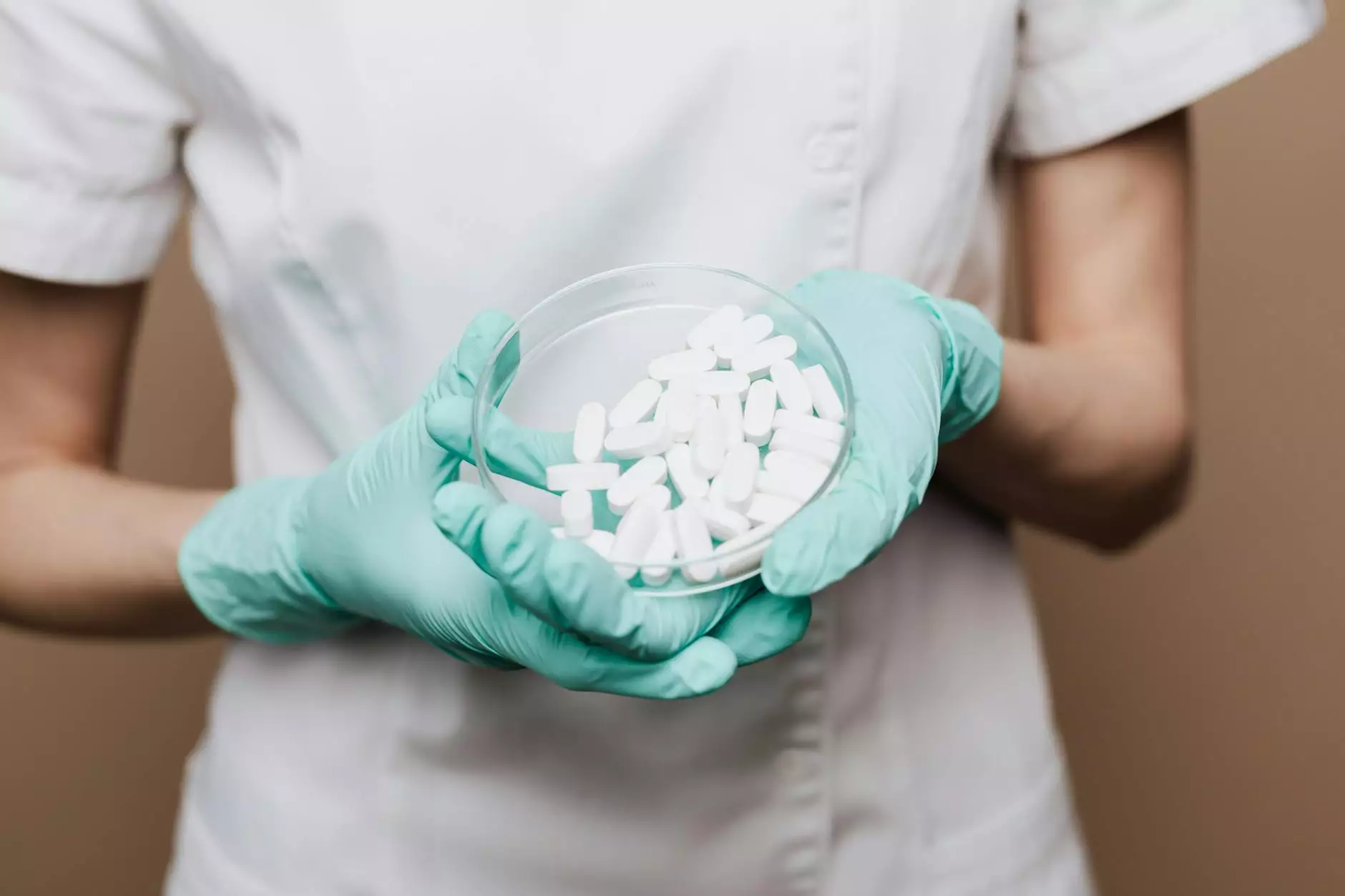The Defining Role of Equine Pharmacy in Racehorse Health

When it comes to the health and performance of racehorses, the importance of a reliable equine pharmacy cannot be overstated. In the high-stakes world of competitive horse racing, ensuring that these magnificent animals are at their peak requires not just training and nutrition, but also access to the right medications and therapies. An understanding of how an equine pharmacy operates and the kinds of services it provides can be the difference between triumph and defeat on the racetrack.
Understanding Equine Pharmacy: What It Entails
An equine pharmacy specializes in the preparation, dispensing, and proper management of medications for horses. It serves as a critical resource for horse owners, trainers, and veterinarians alike. Here’s a breakdown of what equine pharmacies provide:
- Prescription Medications: Specially formulated drugs that cater to the unique health needs of horses.
- OTC (Over-the-Counter) Products: Supplements, vitamins, and other health products that don’t require a prescription.
- Compounded Medications: Tailor-made pharmacological solutions that are customized for specific needs of a horse.
- Consultation Services: Expert advice on the best treatment options for your horse.
- Education: Information on the safe usage of equine medications and best health practices.
The Importance of Specialized Pharmacy for Racing Horses
Racehorses are unique athletes that have specific health needs. Each horse, depending on its age, breed, and specific health conditions, requires tailored medical care. Here is why equine pharmacies play a vital role in the racing industry:
1. Performance Enhancement
To maintain top performance levels, racehorses may occasionally require performance-enhancing medications. This is a contentious topic within the industry, often treading a fine line between permissible therapeutic treatments and the risk of disqualification for doping violations. A knowledgeable pharmacist in an equine pharmacy can help navigate these waters to ensure compliance with racing regulations.
2. Preventative Care
Regular check-ups and the use of preventative medications are integral to keeping racehorses healthy. Vaccinations, deworming, and nutritional supplements all play significant roles in the preventative care regimen offered by equine pharmacies. Preventative measures protect against common equine diseases, which can keep horses competing at the highest levels.
3. Injury Management and Recovery
Injury is a significant risk in horse racing. Equine pharmacies provide critical medications for managing pain, inflammation, and infection, which may arise from injuries on the racetrack. Proper management of injuries through pain relief and other therapies allows for a quicker recovery, enabling racehorses to return to the track sooner.
Choosing the Right Equine Pharmacy
When selecting an equine pharmacy, horse owners should consider several factors to ensure they meet the needs of their horses:
1. Credentials and Experience
It's essential to choose a pharmacy that specializes in equine health. Pharmacists should possess credentials and a strong understanding of veterinary medicine related to horses. Look for pharmacies that are affiliated with licensed veterinarians.
2. Range of Products and Services
Evaluate the array of products available. A good equine pharmacy should offer a wide selection of both over-the-counter and prescription medications, as well as supplements and veterinary services.
3. Customer Support and Consultation
Find a pharmacy that provides strong customer support. Pharmacists should be available to answer questions about medications, dosage, and potential side effects, helping horse owners make informed decisions.
4. Reputation
Look for reviews and testimonials from other customers. A reputable equine pharmacy will have positive feedback regarding its products, services, and expertise.
Common Medications in Equine Pharmacy
Equine pharmacies carry a wide variety of medications. Here are some commonly prescribed categories:
- Antibiotics: Used to treat bacterial infections. Common examples include Procaine Penicillin and Ceftiofur.
- Non-Steroidal Anti-Inflammatory Drugs (NSAIDs): Such as Phenylbutazone for pain relief and inflammation.
- Antifungals: Medications like Itraconazole that treat fungal infections.
- Wound Care Products: Dressings and topical ointments for managing and treating wounds.
- Vaccines: Essential for preventing diseases like West Nile Virus and Equine Flu.
Safety First: Managing Medications Properly
When utilizing medications from an equine pharmacy, safety is of utmost importance. Here are critical tips for managing equine medications:
1. Follow Veterinary Guidance
Always use medications as prescribed by a veterinarian. Incorrect dosages or inappropriate uses can lead to serious health issues.
2. Monitor for Side Effects
Be vigilant about any potential side effects and report them to your veterinarian immediately. Understanding how your horse reacts will help tailor ongoing treatments.
3. Maintain Accurate Records
Keep a detailed log of medications administered, including dosages and timing. This helps in preventing overdoses or missed doses.
Additional Resources for Horse Owners
Harnessing the full potential of your equine pharmacy experience goes beyond just purchasing medications. Here are additional resources and strategies that can help:
1. Online Resources
Many equine pharmacies provide online resources that guide horse owners in understanding medications, their uses, and health management strategies.
2. Networking with Other Horse Owners
Join local horse owners’ groups or forums to share experiences, medication tips, and product recommendations.
3. Continuous Learning
Stay informed about the latest research in equine medicine and pharmaceutical advancements. Incorporating current knowledge into your care strategies can enhance your racehorse’s health and performance.
The Future of Equine Pharmacy
The field of equine pharmacy is constantly evolving. Innovations in pharmaceuticals, holistic approaches, and advanced veterinary care are transforming how we manage racehorse health. As technology and research progress, horses will benefit from more targeted therapies and safer medications, allowing trainers and owners to provide the best possible care.
Conclusion: Elevating the Standards of Equine Care
The integration of a competent equine pharmacy into the care regimen of racehorses marks a commitment to excellence in equine health. By understanding the role of pharmaceuticals, making informed choices, and prioritizing the welfare of these majestic athletes, we ensure that the racehorse's legacy continues in peak health and performance.
Whether you are a seasoned horse owner or new to the equestrian world, leveraging a high-quality equine pharmacy service is pivotal in your pursuit of excellence on the racetrack. Your horse deserves the very best in care, and with the right resources, you can achieve that every day.









